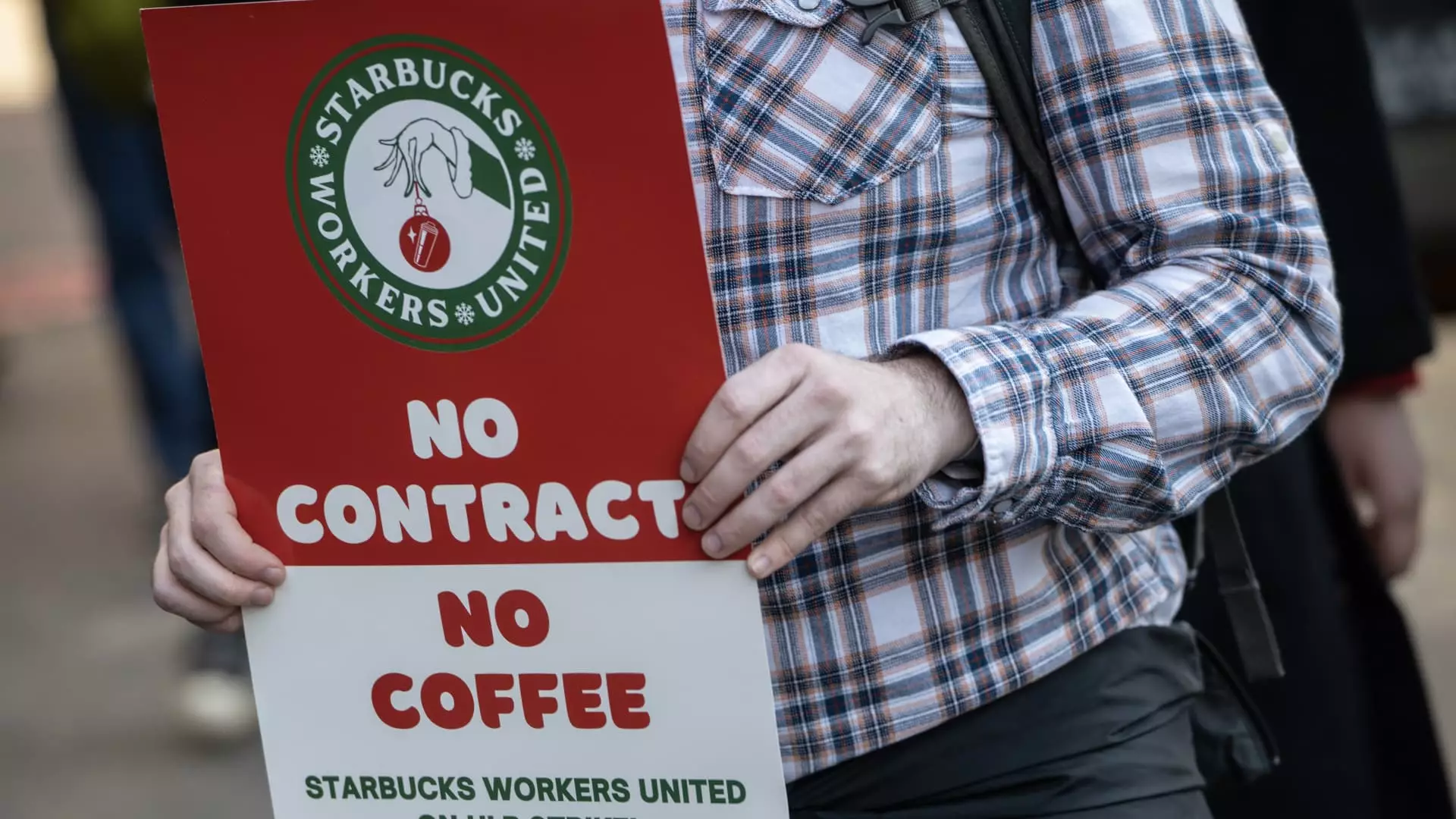As the holiday season approaches, the iconic coffee chain Starbucks is facing significant labor unrest. Baristas across multiple major cities, including Los Angeles, Chicago, and Seattle, have organized strikes that are set to escalate as Christmas Eve draws near. The strikes, initiated by Starbucks Workers United, symbolize the growing discontent among workers regarding inadequate compensation and the company’s failure to uphold previous commitments regarding pay.
According to a recent statement from Starbucks Workers United, the union is urging for improved wages for its members. The union’s frustration stems from what they describe as Starbucks “backtracking on our promised path forward.” This sentiment is indicative of a larger issue at play, reflecting the ongoing struggle for fair compensation within the service industry. The baristas are advocating for a 64% immediate wage increase and a 77% hike over a three-year contract period, demanding a fair share of the profits they help generate.
The timing of these strikes couldn’t be more crucial. Consumers typically flock to Starbucks during the holiday season, leading to long waits for their favorite beverages and holiday-themed merchandise. As the strikes unfold, customers might find themselves facing longer queues and slower service, highlighting the critical role baristas play in the company’s daily operations. This potential disruption could lead to customer dissatisfaction, particularly during a time when many individuals are off work, shopping for last-minute gifts, or indulging in holiday treats.
Relations between Starbucks and the union have experienced a deterioration reminiscent of chillier times in corporate-labor relations. Earlier this year, there was a glimpse of potential collaboration between both parties, with discussions held to create a framework for collective bargaining. However, despite multiple negotiations, the outcome has remained stagnant, with the last bargaining session concluding without a comprehensive agreement. Starbucks’ offer of minimal pay increases has only deepened the union’s grievances, prompting the threat of strikes.
Starbucks is not alone in facing labor disputes this season; workers across various sectors are rallying for better conditions as well. For instance, Amazon workers at several facilities recently initiated strikes, demonstrating that the fight for fair pay and working conditions transcends just one company. Such collective action signals a broader movement among workers who are increasingly demanding accountability from their employers amid economic challenges.
As the strikes approach, the pressure is mounting on both Starbucks and the union to find common ground. The looming holiday season and the potential impact on customer service add urgency to the negotiations. Workers are hoping for a swift resolution that would ensure fair compensation and recognition of their contributions to the company’s success. Until both parties can come to the table with genuine intentions to negotiate, the rift may continue to deepen, further complicating an already tense situation between workers and management.

